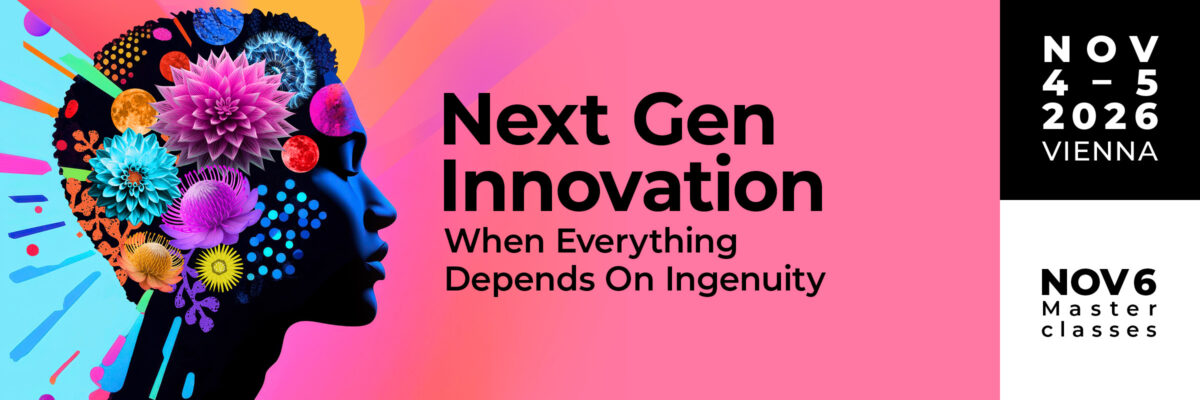
No woman – no Drucker. Not only in terms of the physical body: his body of work was immensely inspired by women. When asked for a book recommendation, he would respond that any Jane Austen novel will do, since every Jane Austen heroine is a better manager and executive than any American CEO.
In the first chapters of his autobiography, Peter Drucker gives credit to women that kindled in him curiosity and self-discipline. One of them is “beloved aunt Trudy”, Gertrude Bien, who was the first European woman doctor of Drucker’s time to become chief of staff and medical director of a major hospital. In medical school she was subjected to constant harassment: told to always sit in the last row, never to ask a question, and was addressed meticulously as “Mr. Bien”.
Peter Drucker would not have missed the opportunity to support the Women in Tech Carnival organized by Huawei in the Global Peter Drucker Forum framework.
Hosted by Berta Herrero Estalayo, Head of Equality, Diversity & Inclusion at Huawei EU, the Carnival posed a question: what action should we undertake to have more women as leaders at the forefront of the tech revolution?
Two pillars of leadership
Speakers came from diverse fields, such as Tech, Science, Education, and Arts, but they were unanimous in coining the two pillars of female leadership: Curiosity and Action.
Ada Yonath, a live embodiment of curiosity and the winner of the Nobel Prize in chemistry opened the Carnival. In her speech, Ada recalled that she was described as a dreamer, a fantasist, and even as the village idiot. She didn’t care. What she cared about was convincing people to allow her to go on with her work.
When she was a young scientist, the structure of ribosomes was a mystery. Ada had a “ribosome epiphany” when she was recovering from a concussion after a bicycle accident. She read a travel brochure about the hibernation of polar bears. She thought, “The bears barely function when they’re asleep. But when they wake up, they have to do all sorts of things.” This meant that nature had a system to preserve the ribosomes – an insight that led to revolutionary discoveries in crystallography.
Passion is not enough
Passion unlocks potential, but it is undoubtedly not enough to simply invite women to follow their passion to establish equality in tech. Women have been enthusiastic about entering the tech world ever since Ada Lovelace published the first computer algorithm in history. However, women face numerous obstacles: according to statistics provided by Sofia Chatzigiann, Assistant Program Specialist at UNESCO Institute for Lifelong Learning, 264 million fewer women than men have access to mobile internet. Closing the gender literacy gap is one of the goals of GAL, The Global Alliance for Literacy within the Framework of lifelong learning, launched by UNESCO in 2016.
It is also essential to help women stay in tech. To quote Sabina Ciofu, Associate Director at TechUK, the average career length of a woman in tech in the UK is just 7 years. Organizations need to create environments that will be supportive of women in different stages of their life and career and would also encourage women to re-enter tech after a pause. This will be a very important step in a world where 1 of every 3 women has been subjected to domestic and/or sexual abuse, and financial fragility exacerbates the alienation of women thus enabling the multiple cycles of abuse.
Moon Jerin, Founder and CEO at Aeindri Protocol, gave advice to women in tech who want to look out for each other. “Don’t just be a mentor”, she said. “Be an active sponsor”.
Drucker’s female role models
This reminded me of Genia Schwarzwald, a disruptor of the Austrian education system and one of Peter Drucker’s female role models. Then it was practically impossible for girls to enter a university in Austria. Secondary schools for women stopped two years short of the exam and did not teach Latin, Greek, mathematics, and physics.
Genia opened the first exam preparation courses for girls. Nobody took her plan seriously, but, according to Drucker, Genia was a woman of assertiveness and “like all successful activists, lived the old definition of a peace-lover: a person who is willing to listen after having knocked the opponent unconscious”.
She paid for the first full-page advertisement ever seen in Viennese newspapers to announce the courses. In a small print, it added: “Don’t worry about fees. They can be arranged”.
When Drucker’s mother Caroline saw the ad, she rushed to the address given. She was an orphan, and her legal guardian abhorred the idea of a woman going to the university. He had only let her take lessons of Sanskrit: this way, he argued, she could not complain that she was denied learning, yet she would not learn anything of use for the medical school exam. After receiving a scholarship from Genia, Caroline enrolled in preparation classes and soon entered the university.
It needs more than mentoring
Women are often over-mentored and over-motivated yet underfunded. Huawei projects, such as Tech4her Scholarship Program for female STEM students, serve as an example of active sponsorship. They help women enter science and tech fields, where, as the panelists of Women In Tech Carnival put it, “nothing is easy, but everything is possible”.
About the Author:
Tanya Orlyk is a reading educator and the Ukraine program coordinator at Library For All, a global EdTech organization that is now supporting the learning continuity of Ukrainian children. Tanya is a 2-time Drucker Challenge winner and part of Ukraine’s Forbes 30 under 30 list. She teaches reading strategy courses for MBA students and speaks on the topic of reading culture.

